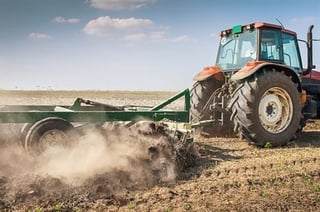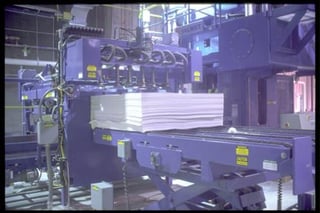When your business has a significant investment in your equipment assets, knowing the value of those assets and having the ability to leverage that capital can make all the difference when you're trying to grow your company. Though you could simply take an equipment dealer's word on that value, a bank appraisal can provide you with an accurate value that takes a wide range of factors into account. Here's a quick overview of how this type of equipment appraisal helps you leverage your company's machinery assets for better growth.
How can a bank appraisal help you get more out of your equipment?
If you're considering growing or making changes to your business, it's pretty common to pursue bank financing to make those changes. However, with the increased rules and regulations that were put into place following the 2008 recession for business loans, many financial institutions are requiring additional assurance that you have the ability to pay back a loan. One of the areas where this can impact your company's assets is through an appraisal of your company's machinery. How does this type of appraisal work and what other benefits can you reap from the process?
A financial appraisal takes a solid look at your company's assets and their value in the free market. A certified equipment appraiser spends their days reviewing equipment values. This gives them a very specialized skill set and an advanced knowledge of machinery that can be leveraged for your company's growth.
To start, the equipment appraiser will look at the equipment's condition. Because they have extensive experience working with a wide range of equipment, they know what to look for in terms of wear and tear, potential abuse issues and overall value on the open market. This also makes them very good at noticing potential issues with your equipment that may have otherwise been missed. By catching these issues early, you can make repairs or additional maintenance before small, easy problems become big, expensive ones.
Another area where you can see strong benefits for your company is by knowing the right value for your equipment. Most companies use tax-agency-based depreciation tables to determine what equipment is actually worth. However, that doesn't mean that the value from those tables is correct. Almost every company has a piece or two of ancient equipment that is still providing exceptional service long after it was declared worthless by the depreciation tables, whether it's an aging table saw or an old truck that keeps on rolling. At the same time, many companies have purchased equipment that has failed prematurely, either through abuse or excessive use, or through poor engineering and design. These same depreciation tables show that equipment as having value long after it has become virtually worthless.
Knowing what your equipment is worth through a solid bank appraisal allows you to leverage that equipment to grow your company into a promising new future. But don't trust just anyone who knows a little about equipment values to give you an accurate value. Certified equipment appraisers use tested methodologies that hold up well in virtually all circles, whether financial, legal, insurance or tax concerns are under scrutiny. Make sure you work with a certified appraiser to ensure the money you spend on an appraisal provides you with the most accurate results available.



